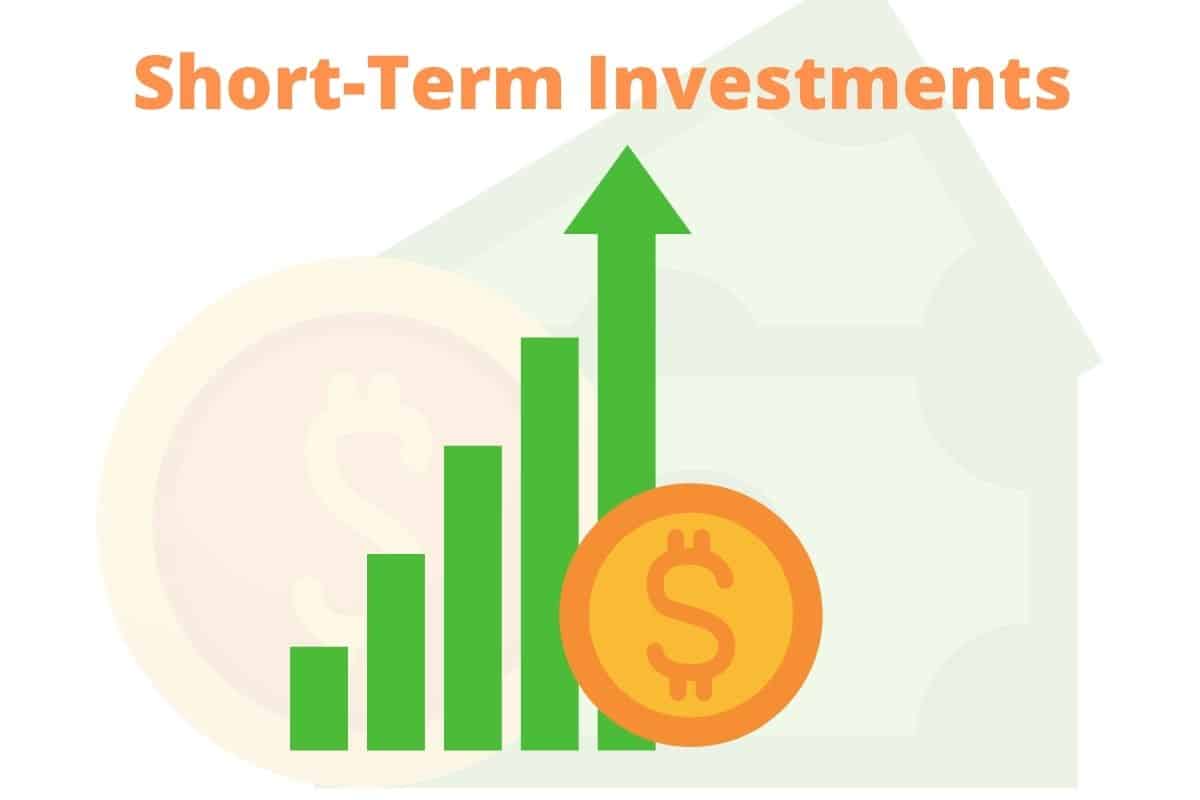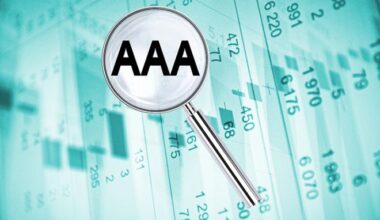What Are Short-Term Investments?
Short-term investments, also known as marketable securities or temporary investments are those you make for less than three years. You are sacrificing a potentially higher return for the certainty of having the money.
Many short-term investments are sold or converted to cash after as little as 3 to 12 months. Often times when you make a short-term investment, you do so because you need the money at a specific time. For example, if you are saving for a down payment on a house or a wedding, the money should be ready.
How Does Short-term Investments Work
The objective of any short-term investment, both for corporate investors and individual/institutional investors, is to protect capital while offering a return similar to that of a Treasury bill index fund or other similar benchmarks.
Companies with a strong cash position have a short-term investment account on their balance sheet. As a result, the business can afford to invest excess cash in stocks, bonds, or cash equivalents for higher interest rates than a regular savings account.
There are two basic requirements for a business to qualify for a short-term investment. First, it has to be liquid, like a stock traded on a major stock exchange that is frequently traded or on US Treasuries. Second, management must intend to sell the security in a relatively short period of time, such as 12 months.
Marketable debt securities, also known as “short-term paper” that mature in one year or less, such as US Treasury bills and commercial paper, are also considered short-term investments.
Marketable stocks include investments in common and preferred stocks. Negotiable debt can include corporate bonds, that is, bonds issued by another company. However, they must also have short expiration dates and must be actively traded to be considered liquid.
Examples of Short-term Investments
Some common short-term investments and strategies used by companies and individual investors are:
- Payment receipts (CD): These deposits are offered by banks and generally pay a higher interest rate as they lock the cash for a period of time. It is insured by the FDIC up to $ 250,000.
- Money Market Accounts: The returns on these FDIC-insured accounts exceed the returns on savings accounts, but require minimal investment. Note that money market accounts are different from money market funds that are not insured by the FDIC.
- Treasury: There are a variety of these bonds issued by the government, such as Notes, bills of exchange, floating-rate notes, and inflation-protected securities (TIPS).
- Pension fund: These funds offered by professional asset managers/investment companies are better suited for a shorter period of time and offer above-average risk returns. Just keep the fees in mind.
- Municipal bonds: Issued by local, state, or non-state agencies, these bonds can offer higher yields and tax benefits because they are often exempt from income taxes.
- Peer-to-peer loans (P2P): Excess money can be brought into play through one of these lending platforms, linking borrowers with lenders.
- Roth IRA: For individuals, these vehicles offer flexibility and a variety of investment opportunities. Contributions, but not earnings, to Roth IRAs can be withdrawn at any time with no penalties or taxes owed.
Best Short-term Investments in 2023:
Below are the short-term investment options with high returns you should consider in 2023
Savings accounts
A savings account at a bank or credit union is a good alternative to having cash in a checking account, which generally pays very little interest on your deposit. The bank regularly pays interest on a savings account.
Savers do well with comparison store savings accounts because it’s easy to find the banks with the highest interest rates and set one up.
Liquidity: Savings accounts are very liquid and can add money to the account. However, savings accounts generally only allow up to six free withdrawals or transfers per statement cycle. (The Federal Reserve has allowed banks to waive this requirement as part of its market contingency measures.) Obviously, beware of banks that charge account management or ATM access fees so that you can minimize them.
Risk: Savings accounts are insured with banks with the FDIC and with credit unions with the NCUA, so you won’t lose money. There is no real risk to these short-term accounts, although investors who hold their money for longer periods will have trouble keeping up with inflation.
Short-term corporate bond funds
Corporate bonds are the bonds of large companies that are issued to finance your investments. They are generally considered safe and pay interest on a regular basis, possibly quarterly or twice a year.
Pension funds are collections of these corporate bonds from many different companies, generally in many industries and sizes of companies. This diversification means that an underperforming bond will not detract much from the total return. The pension fund pays interest regularly.
Liquidity: Money market accounts are very liquid, although federal law places some restrictions on withdrawals.
Risk: A short-term corporate bond fund is not insured by the government and therefore may lose money. However, bonds tend to be quite safe, especially if you are buying a widely diversified collection. Additionally, a short-term fund offers the least risk of changing interest rates, so rising or falling interest rates don’t affect the fund’s price too much.
Cash management accounts
A cash management account allows you to put money in a variety of short-term investments, and it behaves very similarly to a general account. You can invest frequently, write checks on the account, transfer money, and do other typical banking activities. Cash management accounts are often offered by Robo-advisors and online brokers. Therefore, the cash management account offers you a lot of flexibility.
Liquidity: Cash management accounts are extremely liquid and money can be withdrawn at any time. In that sense, they may even be better than traditional savings and money market accounts, which limit monthly withdrawals.
Risk: Cash management accounts are often invested in safe, low-yielding money market funds, so there is little risk involved. With some Robo-advisor accounts, these institutions deposit their money in FDIC-protected partner banks. Therefore, you should ensure that you do not exceed the FDIC deposit insurance if you are already doing business with one of the partner banks.
Short-term US Treasury funds
Government bonds are like corporate bonds, except that they are issued by the federal government of the United States and its agencies. Government bond funds buy assets such as treasury bills, treasury bills, treasury notes, and mortgage-backed securities from government-sponsored companies such as Fannie Mae and Freddie Mac. These bonds are considered low risk.
Liquidity: Government bonds are one of the most traded assets on stock exchanges, making government bond funds highly liquid. They can be bought and sold every day the exchange is open.
Risk: While these bonds are not backed by the FDIC, the bonds are the government’s promise to pay you back. These bonds are considered very safe as they are backed by the full faith and solvency of the United States.
Also, a short-term bond fund means that an investor takes low-interest rate risk. Therefore, rising or falling interest rates do not have a major impact on the fund’s bond price.
READ ALSO: INCOME BOND
Payment receipts
You can find certificates of deposit or CDs at your bank, which generally offer a higher rate of return than other banking products, such as savings accounts and money market accounts
CDs are term deposits. So when you open a CD, you agree to keep the money in the account for a certain period of time, ranging from weeks to many years, depending on how long you want. In exchange for the security of having this money in your vault, the bank pays you a higher interest rate.
The bank regularly pays interest on the CD. At the end of the CD’s useful life, the bank returns your principal plus any interest you’ve earned.
Liquidity: CDs are less liquid than other bank investments on this list. Generally, if you accept the terms of the CD, you allow the bank to charge you a penalty for finalizing the CD early. Therefore, you must be especially careful not to tie up your money and then have to access it before the term expires.
Risk: CDs are FDIC insured, so you won’t lose money on them. The risks of a short-term CD are limited, but one of the risks is that you will lose a better price elsewhere while your money is tied up on the CD. If the interest rate is too low, you can also lose purchasing power due to inflation.
Best Short-Term Investments Banks
Below is a list of best short-term investments for your money
- DISCOVER
- CIT BANK
- UFB DIRECT
- FUNDRISE
- WORTHY
When you need to invest your money for only several weeks or months, you don’t need to pour money into investments that are not easy to liquidate, have withdrawal fees, or are too risky in the short term. A course on Financial Intelligence can help you get started on a good note.
What are the Benefits of Short-term Investment?
An investor who prefers to invest for the short term can do so without waiting for a security to mature before receiving any payouts. Long-term investments, on the other hand, can be sold on the secondary market, however at a lesser price for the investor.
Very large returns on investment can be made in a relatively short period of time.
Less money is at stake in each deal, thus there is less of a chance of something going wrong.
What are the Problems of Short-term Investment?
Due to the high amount of trades and brokerage fees associated with them, short-term investing is expensive. The earnings from short-term investments are lower due to taxation and inflation.
Expertise and patience are required, as investors must track price changes in order to determine when to buy and sell.






